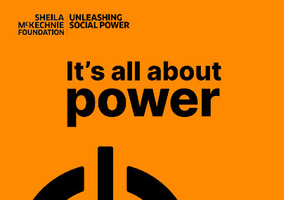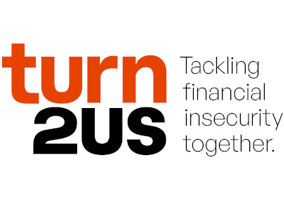Fundraising appeals led by the people they aim to help often raise more money than those created by a charity itself, new research finds.
Who Owns the Story? is a study conducted by David Girling from University of East Anglia (UEA) and Jess Crombie from University of Arts London (UAL) in partnership with the charity Amref Health Africa.
The study conducted an experiment where two fundraising appeal packs were sent out to 1800 people on Amref’s supporter database.
The first pack was created by community health worker in Kenya, Patrick Malachi, who told his story in his own words. The second was created by Amref in the voice of the charity.
Malachi’s pack was significantly more successful than the one created by the UK based fundraisers. The average gift for his appeal was £76.23 compared to £55.50 pack created by Amref.
The participant created pack raised an average of 38% more than the quarterly fundraising packs usually sent out by Amref receive, the report concluded.
Authentic storytelling
People who donated to the participant created pack were asked to answer a questionnaire. Some 8% responded, and garnered the following responses:
- 83% of respondents had felt as though they had an emotional connection with the story.
- 71% believed the appeal was different to others they have seen.
- Respondents valued Malachi telling the story using his own words and images.
- Respondents recognised the participant-led leaflet steered away from feeding into savourist narratives, which made them more inclined to donate.
Rachel Erskine, communications manager at Amref Health Africa UK, said: “Amref has made a public commitment to ethical storytelling and representation in fundraising and communications. In practice, this means - among other things - creating opportunities for the people we support to tell their own stories directly to the UK public.
“Partnering with UEA and UAL on Who Owns the Story? was a way for us to take that commitment to the next level and really put our money where our morals are by testing the widely-held assumption that differently-told stories won’t move supporters to take action.”
Challenges dominant sector opinion
David Girling, from UEA’s School of International Development, said: “This research proves without doubt that it is possible to enable participant-led choices regarding storytelling, and still raise as much money as if you had created the fundraising materials yourself.
“It challenges the dominant sector opinion that in order to raise funds, stories must be selected and created by professional fundraisers. We hope that the project will inspire other organisations to work in partnership with the people whose stories they share.”
Jess Crombie, of UAL’s London College of Communication added: “Our results show there is another way of gathering and sharing the stories of people living in poverty around the world. It is really about trusting that if we hand the power of editorial decision-making and narrative choice to the people living these stories, we won’t just be doing something ethically sound, we will also tell more powerful, more interesting and ultimately more effective stories.”
Traditionally, fundraisers feel appeals need ask supporters to donate, the report reads. However, Malachi’s pack proved this was not necessary. His appeal raised more, but he never explicitly asked for donations or mentioned the role of the supporter.
This success was not down to Malachi being an “undiscovered communications talent”, the report said. It is because they have lived through the experience they are describing, which provides the “nuances and contexts that help humanise us all”, it said.
Improves experience of those being helped
The study found that the four participants involved in creating the first fundraising pack enjoyed being in control of the narrative, and felt proud they were able to tell the story of their community.
Contributors expressed that they felt more comfortable being photographed by someone they knew or who lived in the same community as opposed to an outsider.
One donor to the participant-led appeal said: “It’s good to see the old paternalistic model of charitable donation give way to a realisation that Africans are capable of making their own decisions about how to help their community.”
Editor's note
This article has been updated to include a quote from Jess Crombie
Related articles











